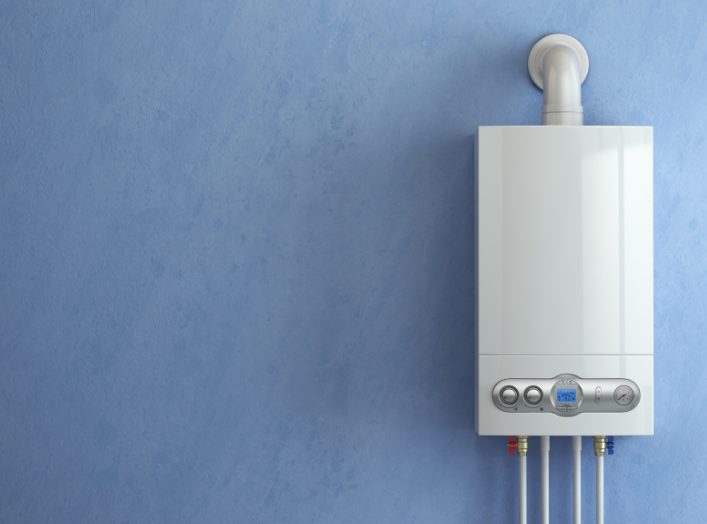A hot shower is a simple luxury that’s easy to take for granted – until there’s an issue with the water heater. These instant gas systems give us hot water on demand, warming us on cold mornings and washing away the day’s grime. Proper maintenance keeps them working smoothly for years.
This guide explains how instant water heating function, tips for basic upkeep, troubleshooting common problems, and when to call a professional. Preventative care like periodic inspection and flushing sediment buildup can prevent many repairs. We’ll also discuss warning signs like rumbling, cold spots, or rusty water that indicate servicing is needed. With some basic DIY checks and a reliable service provider for more complex repairs, your hot water will keep flowing reliably. The goal is to offer useful advice so you can enjoy hot showers with as little hassle as possible.
Understanding Instant Gas Hot Water Systems
An instant gas hot water system, frequently referred to as a tankless system, functions cleverly to heat water on-demand this feature is essentially what earned it the ‘instant’ in its name. When a hot water tap is turned on in your home, cold water travels from your pipes to flow into the unit where it gets instantaneously heated via a gas burner. Some of the undeniable benefits of such a system include an unlimited supply of hot water, improved energy efficiency thanks to the absence of a thermal energy-consuming storage tank. There are multiple brands available, each offering their range of models, each with unique features and specifications to cater to different customer needs. Successful manufacturers in the market include Rinnai, Bosch, and Rheem.
Common Problems with Instant Gas Hot Water Systems
Occasionally, an instant gas hot water system might run into issues. One common problem is the total lack of hot water this condition is frequently due to an overworked burner or a congested pipe. The fixes usually consist of part replacement, deep cleaning, or sometimes both. Unusual noises emanating from the system might be owing to expanding hoses or unstable burner flames – a situation that potentially leads to unsettling ‘mini bangs’ due to small gas explosions. In such cases, regulating the gas pressure generally helps control the flame and subsequently, the noise, ensuring smoother operation.
Water temperature variations might seem like a tricky issue, but they are usually due to faults with the system’s thermostat or in some cases, mineral buildup on the heat exchanger can be the culprit underwear. A simple reset of the thermostat or cleaning out the exchanger should tackle this issue effectively. Gas leaks, while being a significant hazard, can be easily identified by a sulphurous smell or a yellow flame instead of the usual blue one. Particularly in potentially critical situations like gas leaks, it’s advisable to engage expert plumber advice for troubleshooting instant gas hot water systems.
Preventive Maintenance for Instant Gas Hot Water Systems
Scheduled preventive maintenance can significantly extend the lifespan and efficiency of your instant gas hot water system. Think of it as giving your system a regular tune-up! This typically involves professional checks and cleaning of the burner, leak detection, vent system inspection for proper airflow, and overall performance optimization. While some homeowners might be comfortable tackling certain tasks, consulting a qualified plumber is invaluable for catching early signs of trouble before they become costly repairs. Their expertise can diagnose complex issues and ensure your system runs smoothly and safely. However, there are simple preventive measures you can take yourself, such as regular system flushes to prevent mineral build-up and minor thermostat adjustments. But remember, when it comes to intricate repairs or specialized knowledge, get expert plumber advice for troubleshooting instant gas hot water systems to avoid potential safety hazards and costly mistakes.
When to Call a Professional: Understanding the Limits of DIY Maintenance
Recognising the limits of DIY repairs is vital when dealing with complex systems. Detailed issues that demand a sophisticated understanding of system workings, like venting troubles, system-sizing issues, and stubborn mineral build-up, generally require professional help. Neglecting the need for professional intervention can lead to escalated system damage and could pose a safety chew hazard. A professional service not only possesses knowledge and experience, but they also have the necessary equipment to perform intricate repairs. Assess your service provider options adequately, taking into account their credentials, customer reviews, and recommendations to ensure you choose a reliable service.
Sustainable Practices for Operating Instant Gas Hot Water Systems
Alongside maintaining the hot water system, adopting eco-friendly practices can contribute significantly to the system’s smoothies functioning and to the environment as a whole. Regular maintenance prevents over-consumption of gas and increases system efficiency. Proper usage and understanding of the system controls also ensure optimal performance and energy preservation. A well thought-out system architectural design and correct installation are additional factors that contribute significantly to energy conservation.
Conclusion
Maintaining an instant gas hot water system might occasionally feel like a juggling act, but this guide can ease the process. Undertaking regular, timely maintenance is central to enjoying an uninterrupted hot water supply. Relying on the right balance of DIY maintenance and when to seek professional help is key, and keeping restorative measures at hand goes a long way. Adopting sustainable practices and considering eco-friendly measures not only helps enjoy system functionality but also contributes positively to the environment.

